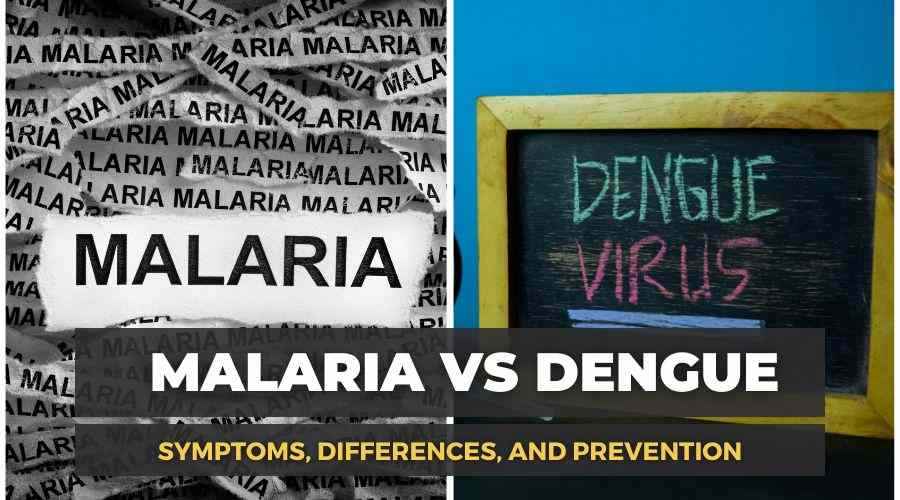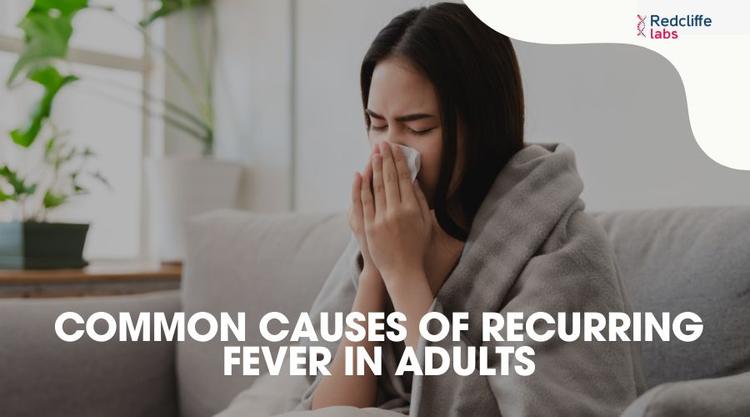Malaria Vs Dengue: Symptoms, Differences, and Prevention

Medically Reviewed By
Dr. Ragiinii Sharma
Written By Muskan Taneja
on Aug 9, 2024
Last Edit Made By Muskan Taneja
on Jul 19, 2025

The changing season brings many diseases, including seasonal flu and fever. Monsoon affects people the most. People normally experience seasonal flu and fever. Malaria and dengue are both mosquito-prone diseases. These two can easily affect the health of any person.
Malaria and dengue symptoms are mostly similar. According to a report by the World Health Organization, malaria-related deaths have grown to 435,000 people annually, whereas dengue is identified as one of the most dangerous mosquito-borne diseases. You must know the symptoms and differences between malaria and dengue.
Let’s understand Malaria and Dengue.
Malaria and dengue are infectious diseases that can affect the lives of a healthy person. Malaria and dengue symptoms initially are similar, such as high fever and chills. Early detection can prevent major illness.
Malaria
Malaria spreads from the bite of female Anopheles mosquitoes, which directly affect blood cells. The symptoms of malaria appear 8-25 days after the bite. The protozoan parasite Plasmodium causes the disease. The malaria mosquitoes are likely to bite during dusk and dawn.
Dengue
The female Aedes aegypti mosquito, also known as the female Aedes mosquito, transmits dengue. Normally, symptoms appear after 4-13 days. The dengue mosquitoes are likely to bite during daylight. They affect platelets and red blood cells.
Are Malaria and Dengue Same?
The bite of mosquitos spreads the disease. However, it is caused by different mosquitos. Plasmodium mosquitoes spread malaria, while Aedes mosquitoes transmit dengue. Also, the symptoms take time to appear. Malaria symptoms appear 8-25 days after a mosquito bite, while dengue symptoms appear 10-15 days after the bite.
Malaria vs Dengue Symptoms
Usually, symptoms such as fever and chills are common in both dengue and malaria. Here is a breakdown of malaria and dengue symptoms.
Symptoms of Malaria
- Continuous fever for 2-3 days
- Headaches
- Muscle pain
- Severe chills
- Heave sweat
- Constant nausea
- Vomiting
- Non-stop dry cough
- Loose motions
- Pain in the upper left abdomen
- Feeling full without eating
- Fatigue
- Organ failure
Symptoms of Dengue
- Sudden high fever
- Severe headaches
- Pain behind eyes
- Severe joint, abdominal, and muscle pain
- Nausea
- Vomiting
- Skin rashes
- Easy bruising
- Fatigue or tiredness
- Swollen lymph nodes
- Mild to active bleeding
- Internal bleeding
- Swollen glands
- Rashes
Any sign of dengue? Get Dengue RNA PCR Test @ Redcliffe Labs.
What’s the Difference Between Malaria and Dengue?
These mosquito-borne diseases, malaria, and dengue, differ based on various factors. Here are the common differences between malaria and dengue.
|
Category |
Malaria |
Dengue |
|
Definition |
The bite of Aedes aegypti mosquito bite spreads dengue. The day is the time of dengue mosquitos. |
The bite of an anopheles mosquito transmits malaria. These mosquitos spread mostly during nighttime. |
|
Commonly affected areas |
Dengue spreads in tropical and subtropical regions, especially Africa, the USA, Southeast Asia, and the Eastern Mediterranean. |
Malaria spreads in Asia, Latin America, the Middle East, and the areas of Europe. Cases, especially in rural areas. |
|
Incubation period |
Three to fourteen days |
Ten to fifteen days |
|
Symptoms |
Bleeding gums, sudden fever, burning eyes, and headache. |
Dry cough, vomiting, sweating, faints, and chills. |
|
Diagnosis |
By an antigen test and anti-body test. |
By microscopic tests of the virus. |
Treatment of Malaria
The treatment of malaria depends on various factors, such as the malaria parasite, severity of the symptoms, age, medication, and pregnancy. Healthcare professionals may conduct a Malaria Parasite Blood test to detect the seriousness of malaria. Redcliffe Labs offers the test at INR 120. If they recommend the test, get it from Redcliffe Labs. By this test, your healthcare professional can detect:
- Presence of the parasite in the blood.
- The malaria parasite is causing symptoms.
- Infection spread by certain drugs.
- If the disease is causing any serious complications.
Depending on the symptoms, your doctor may recommend the diagnosis process. Some blood tests take days, while others are reported on the same day from Redcliffe Labs.
Also, read https://redcliffelabs.com/myhealth/health/malaria-causes-symptoms-diagnosis-treatments/
Treatment of Dengue
There is no specific vaccine for dengue. Your doctor may recommend taking a dengue blood test and some preventive measures. If they do, avail the test from Redcliffe Labs. The blood test can help to diagnose symptoms and causes of dengue. Here is how you can manage the symptoms of dengue fever:
- Keep yourself hydrated. Drink plenty of water or try to consume at least 4 liters of water a day.
- Rest properly.
- Have a healthy and balanced diet.
- Take only prescribed medicines.
- Avoid stress and stay calm.
Also, read https://redcliffelabs.com/myhealth/fruit/best-fruits-to-eat-during-dengue-fever-for-quick-recovery/
Preventive Measures for Malaria and Dengue
Preventive measures for malaria and dengue are crucial since mosquitoes transmit both diseases, but they have different vectors and require different strategies for prevention. Here’s a comprehensive guide to help prevent both:
For Malaria Prevention
- Avoid Mosquito Bites
- Use Insect Repellents
- Wear Protective Clothing
- Use Mosquito Nets
- Stay in Air-Conditioned or Screened Rooms
- Environmental Control
- Eliminate Standing Water
- Use Larvicides
- Medication
- Chemoprophylaxis: If traveling to malaria-endemic areas, take antimalarial medication as a healthcare provider prescribes.
- Early Diagnosis and Treatment
- Seek Prompt Medical Attention: If you develop fever, chills, and flu-like symptoms, seek medical help immediately to get tested and treated.
For Dengue Prevention
- Avoid Mosquito Bites
- Use Insect Repellents
- Wear Protective Clothing
- Use Mosquito Nets
- Environmental Control
- Eliminate Standing Water: Dengue mosquitoes breed in clean, stagnant water. Regularly empty, cover, or treat containers such as buckets, flowerpots, and tires.
- Use Larvicides: In water storage containers, larvicidal products kill mosquito larvae.
- Community Efforts
- Participate in Community Clean-Up Drives: Join local efforts to eliminate mosquito breeding sites in your community.
- Educate Others: Spread awareness about dengue prevention in your community.
- Personal Protection
- Use Mosquito Screens: Ensure homes are fitted with screens on windows and doors.
- Avoid Outdoor Activities During Peak Mosquito Hours: Mosquitoes that transmit dengue are most active during the daytime, especially early morning and late afternoon.
- Seek Medical Advice
- Consult a Healthcare Professional: If you experience symptoms like high fever, severe headache, pain behind the eyes, joint and muscle pain, or rash, consult a healthcare provider for diagnosis and care.
Key Takeaways
Malaria and Dengue are two severe mosquito-borne diseases. These two have certain common symptoms. Early detection can prevent any life-threatening disease. If you see symptoms, look for a doctor. They can guide you better than anyone. If they recommend malaria or dengue tests, get them from Redcliffe Labs. Avail 3600+ tests at an affordable price from Redcliffe Labs.



